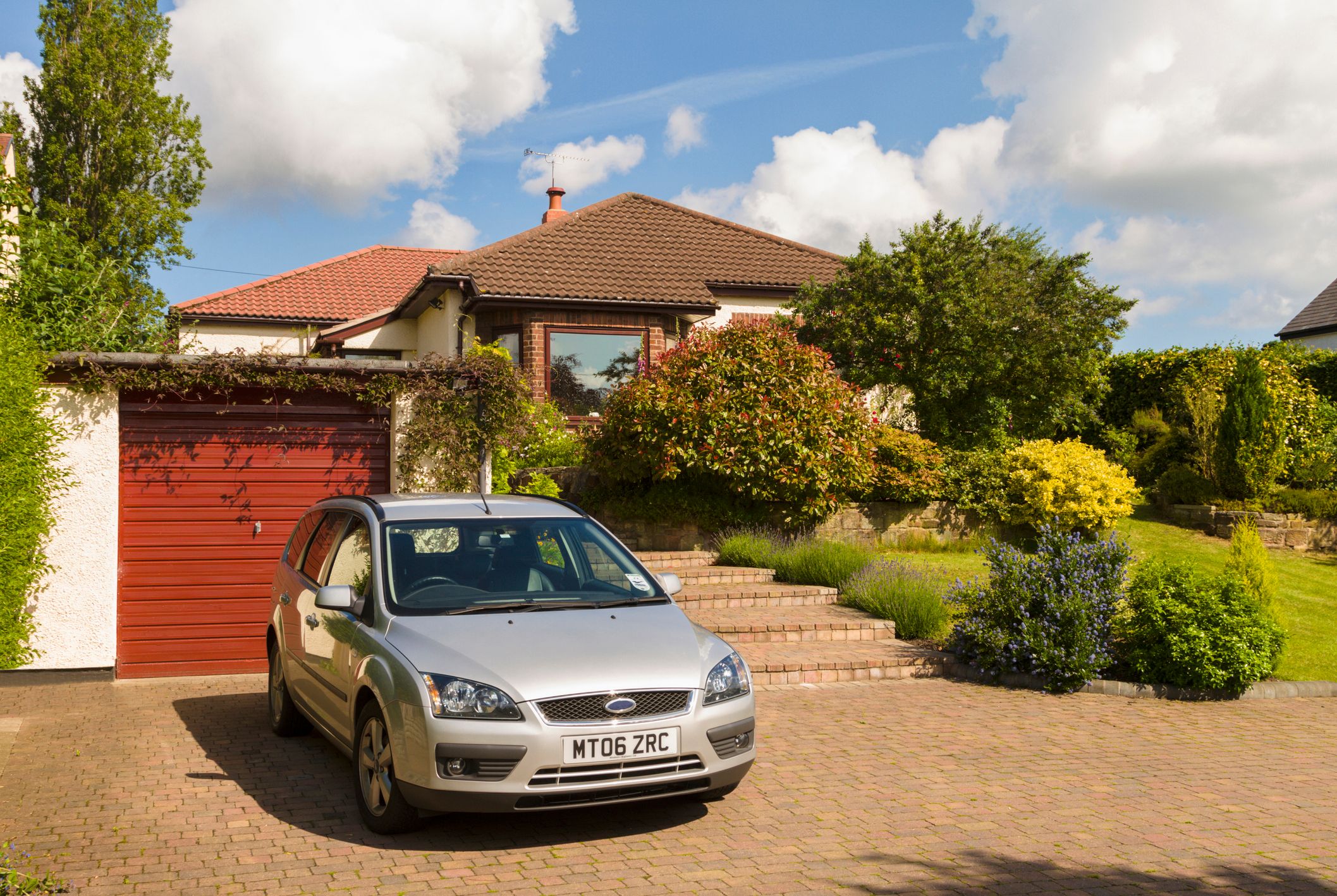Secure Your Car With The Super Car Insurance Plan!
Believe it or Not! Save upto* 75% on TATA AIG Car Insurance
Secure Your Car With The Super Car Insurance Plan!
Believe it or Not! Save upto* 75% on TATA AIG Car Insurance
Charging an Electric Car at Home
- Author :
- TATA AIG Team
- ●
- Last Updated On :
- 15/05/2024
The world faces various fuel-related and mobility challenges, and electric cars are an ideal solution to address this widespread issue. While the international industry has significantly progressed, India is pulling its socks up in the EV race.
Owning an electric vehicle saves you from increased fuel prices, making it a cost-effective choice. Besides, electric vehicles emit negligible pollution into the environment. People often stress about the challenges of charging their electric vehicle, making them hesitate to purchase one.
With developments in technology, electric car charging at home has become a convenient option. The Energy Saving Trust states that 80% of electric automobile charging presently occurs at home.
An EV home charger is capable of completely recharging your vehicle within hours. Alternatively, a fast EV charger can recharge your EV's battery within hours.
Here, we will elaborate on everything you must know about electric car charging at home.
Basics of EV Charging at Home
Electric car charging at home includes plugging your car into an electric medium to charge its battery. The charging time can vary from several hours, based on the charging equipment and battery size. The primary types of EV charging include Level 1 and Level 2 charging.
Level 1 Electric Vehicle Charging: Level 1 is the slow charging option, as it works on basic equipment with low charging capacity. It utilises a basic household energy medium and a charging wire from your EV. The Level 1 charging is ideal for overnight charging as it takes around 20 hours to charge your EV fully.
Level 2 Electric Vehicle Charging: Level 2 is a fast-charging option that requires a Level 2 charging station featuring a 240-volt charging medium. You can easily install a home charging station for EVs and charge them up to six spans quicker than Level 1. A level 2 station can charge vehicles in about five to eight hours.
EV Charging Options at Home
Electric vehicle charging technology is eventually progressing in India. There are multiple available options to charge your EV. Ongoing research is exploring the possibility of solar charging solutions for EVs.
Therefore, there can be a potential future where home EV charging devices can harness solar energy. Three primary home chargers for electric vehicles have varying power output, influencing the charging speed. To gain a comprehensive understanding, let us learn more about the different types of home EV chargers.
The three different types of EV charging stations suitable for the home include:
Rapid EV Chargers
The rapid EV chargers are the fastest EV home charging stations you can install. It uses high-power AC (Alternating Current) or DC (Direct Current) to charge your vehicle's battery swiftly.
Based on the model and brand of your electric vehicle, the rapid charger can charge it up to 80% in as little as 20 minutes.
Certain modern EVs may take around 60 minutes to charge to 80% using a rapid charger.
For rapid chargers, you will need to install a hardwired unit; for now, they do not come in portable units.
Charging initiates rapidly, but the charging speed decreases once the electric vehicle reaches 80% charge. This preventive measure safeguards the battery from internal damage and enhances charging efficiency.
Importantly, you must remember that you can use a rapid charger only for vehicles that support rapid-charging compatibility.
Fast EV Chargers
The fast-charging EV chargers operate on AC and are utilised for charging EVs at home. The vehicle model and the charger's capacity are the factors that define the charging speed of the fast EV chargers.
Fast chargers typically offer a 7 kW or 22 kW charging rate.
A 7 kW fast charger can refill a 40 kW electric vehicle battery from 0 to 100% within 4 to 6 hours.
A fast 22 kW charger can completely charge a 40 kW battery in a few hours.
It is important to ensure that your electric vehicle's battery is compatible with either a 22 kW or 7 kW charging station.
Despite the fast EV chargers being popular in public places, you can easily install one at home for daily use.
You can choose from hardwired and portable EV fast chargers available.
Regular EV chargers
The regular charger is the most commonly used EV home charging station with a slower charging speed than rapid or fast chargers. Overnight charging is ideal when using this type of charger.
Regular EV chargers offer a charging range between 3 kW and 6 kW.
There are options to choose from: hardwired or portable EV chargers.
The regular chargers take about 8 to 12 hours to completely charge an EV.
How Can You Charge an EV at Home
Electric car charging at home is more efficient and convenient than charging stations in public places. The portable and hardwired chargers allow easy tracking of your car charge history and allot specific charging duration daily. Here are the steps to install a home charging station for EVs.
Install a suitable EV home charging setup with the help of a trained professional.
Select a charging point that allows easy EV access if you install a hardwired charger.
Use your charger's swift-charging power and in-built features to simplify the charging procedure.
Plug in the charger at night to completely charge your EV by morning.
During the day, recharge the EV battery for quick charging if needed.
Time Taken to Charge Your EV
Electric car charging time in India is typically around 30 minutes to 12 hours. Factors that determine the time taken to charge your EV completely include the size of the battery of your car and your charging point’s speed.
A 60 kWh EV battery using a 7 kW charging point needs approximately 8 hours to change a vehicle from 1 to 100% completely.
With a 50 kW fast EV charging, you can add approximately 160 km to the electric vehicle range within half an hour of charging.
Remember, bigger car batteries and slower charging points typically increase the duration.
What can Slow Down Your EV's Charging Speeds at Home
Here are the key factors affecting the altering speed for your EVs at home.
Battery Size
Battery capacity or size is measured using kWh. Larger EV batteries typically require more charging time than small-sized EV batteries.
Environmental Conditions
Interestingly, climatic conditions also impact the changing speed of EVs. Charging takes longer in cold climatic conditions, particularly when using a rapid charger. This is because colder temperatures decrease the efficiency of vehicle batteries in bearing a charge.
Battery Charge
Empty batteries take more time to charge than partially charged ones.
Maximum Charging Capacity of the Vehicle
The maximum charging capacity of an EV is the speed at which it charges. If an EV has the highest charging capacity of 7 kW, using a charging point with 22 kW will not help it charge any faster.
Charger's Maximum Charging Capacity
Charging time also varies based on the charger's charging rate. For example, a 7kW charger capacity will not offer over 7kW charging rate to a 12 kW EV battery.
How Frequently Can You Charge Your EV at Home?
Electric car charging at home is similar to any regular electrical appliance, like your laptop or cell phone. Therefore, the process is as simple as plugging your car into the charger as and when required.
Generally, people do not let their EVs discharge completely and timely top it up. You can conveniently plug in your vehicle overnight and allow the battery to charge completely by morning.
With a one hundred percent charged battery, you can enjoy the flexibility to take your four-wheeler out as and when needed.
Factors that Affect the Charging Frequency
Listed below are the points that affect the charging frequency of your vehicle’s battery.
How frequently you connect the charger depends on your car's battery capacity. Batteries with low charging capacity discharge quicker than those with higher capacity in EVs.
The frequency of your car use also affects its charging capacity. The more you use and drive your vehicle, the more you will be required to charge it daily for uninterrupted use.
Charging your EV overnight will provide you with a hundred percent charged vehicle, enabling you to use it uninterrupted. Therefore, you may not need to make unplanned stops at charging stations.
EV batteries discharge faster in cold weather, demanding more frequent charging when used in extreme climatic conditions.
What is the Electric Car Charging Cost at Home?
The electric car charging cost at home depends on the following two aspects:
The capacity of the EV’s battery.
The price/unit of energy provided by your electricity service provider.
Based on your state in the country, the electric cost per kWh ranges between ₹8 to ₹10. Additionally, EV battery capacity in India varies between 20 kWh to 45 kWh.
Therefore, you can easily calculate the charging cost of your EV at home by checking the charging duration, battery capacity, and electricity cost at your house.
How Can You Decrease the Charging Cost of an Electric Vehicle at Home?
Here are what you can ensure to decrease the electric car charging cost at home:
Match the Battery Capacity with the Charging Rate- While purchasing an EV charger, check that its highest charging capacity is not lower than the highest charging rate of the EV.
In addition, even if you purchase an EV charger with an increased charging rate than your vehicle requires, it would be a complete waste. Therefore, always use a suitable charger to save time and money.
Purchase a Faster Charger Than a Normal One- Consider purchasing a fast EV charger if your EV features quick charging compatibility. While a standard charger requires approximately 7 to 11 hours for a full EV battery charge, fast chargers can complete this in 3 to 6 hours, based on their charging capacity.
Advantages of Charging Your EV at Home
Here are the advantages of charging your EV at home:
Convenience
With an EV charger installed right at home, you can conveniently decide a suitable time to charge your car. You need not visit any public EV charging locations and waste time waiting in the queue to charge your car.
In addition, when you have an EV charging station installed right at home, you can indulge in different tasks while your vehicle charges. With a completely charged EV, you can drive your vehicle as and when needed. Thus, you can easily plan your days with sufficient charge in your EV.
Swift Charging
Setting up a swift charger at your house for your EV is more beneficial than relying on a shared charging location. A home electric vehicle charger typically takes about 25 to 50 minutes to charge quickly and nearly 4 to 8 hours to charge your vehicle 100 percent, depending on the charging pace.
This prevents much of your time you would have otherwise spent waiting at a public charging station.
Extended Life for the Battery
Similar to any electric appliance battery, an EV's battery decreases efficiency as time progresses. However, you can reduce the battery degradation if you keep your EV completely charged instead of going for quick charging at different locations.
Therefore, by installing a home charging station, you can sustain a longer battery life for your EV.
Compatibility
You can purchase a home EV charger that aligns with its maximum capacity, making it simpler than looking around for brand-specific public charging spots with different battery capacities.
How to Install an EV Charging Station at Home
Considering safety and accuracy, approach an expert professional to install an EV home charging station. Please refrain from doing it yourself. Once you have an expert at your home, follow the below-listed steps for a seamless installation.
Step 1: Purchase a home EV charger based on your EV's battery capacity.
Step 2: Access and ensure the EV charger installation area meets the typical technical safety criteria.
Step 3: Ensure the electric capacity at your home can easily take up the load of the EV charger. If not, connect with the electricity department and increase the supply limit.
Step 4: Request the electrician to create room for a circuit breaker on the electrical panel.
Step 5: Have the EV charger installed, and before beginning charging at home, test it for safe wiring.
To Conclude
Insurance for a car, whether manual or electric, is mandatory to enjoy a carefree driving experience. With the rapid increase in EVs in India, electric car insurance is now a necessity.
Electric car insurance plans are designed to provide financial aid to EV owners for unforeseen damages or losses. It is mandatory by law to purchase car insurance, be it for manual or electric vehicles. Therefore, investing in comprehensive motor insurance for broader coverage for your electric vehicle is recommended.
If you plan to buy car insurance for your electric vehicle, you can head to our Tata AIG car insurance page for numerous available choices per your requirements. At Tata AIG, we provide third-party and comprehensive motor insurance for extensive vehicle coverage.
Buying car insurance is easy and quick with us. You can conveniently purchase a suitable EV insurance plan online. Moreover, you can compare car insurance online before choosing the right plan for your insurance needs. This quick and straightforward process does not take more than a few minutes. In addition, there is 24*7 expert assistance available at your disposal with all Tata AIG plans.
FAQS
How safe is it to charge EVs at home?
Charging your EV at home is safe and secure if you use the charging equipment correctly and follow the mentioned guidelines. In addition, call for an expert professional for installation and restoration who can seamlessly follow the manufacturer's instructions.
Can you charge an electric car at home with a normal plug?
You can use a normal socket to provide a 3 to 5 miles/hour range. Charging an electric vehicle with a 300-mile driving range from zero to full could take up to 60 hours.
What is the electric car charging cost at home?
The electric car charging points cost at home varies between ₹13,000 to ₹75,000, including software and installation. The government recommends using the IEC 60309 Industrial connector to charge home EVs.
Disclaimer / TnC
Your policy is subjected to terms and conditions & inclusions and exclusions mentioned in your policy wording. Please go through the documents carefully.



